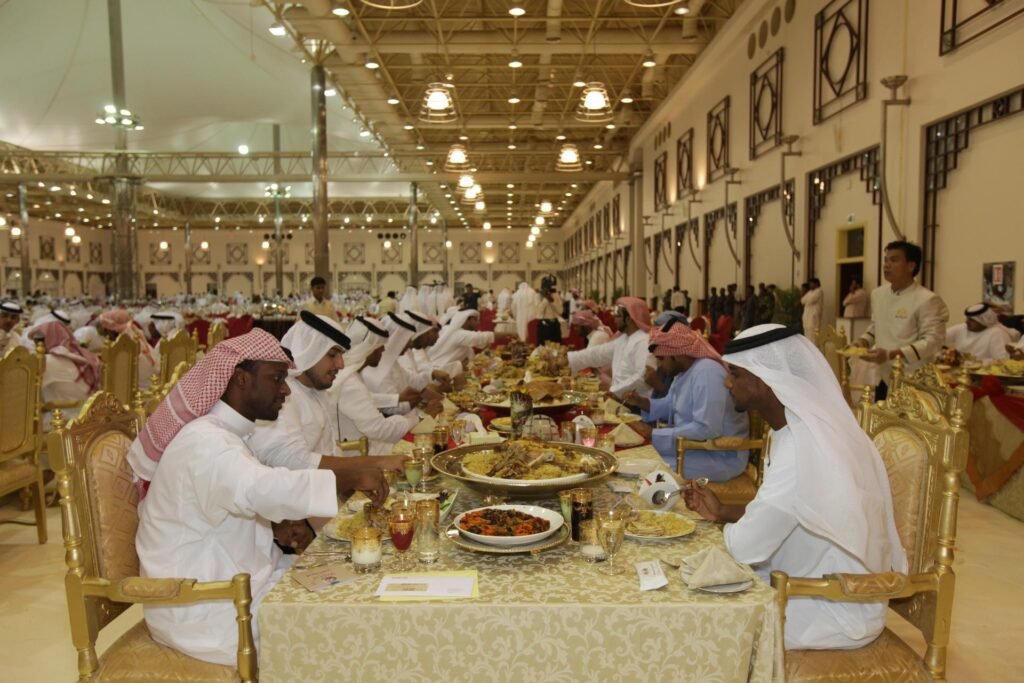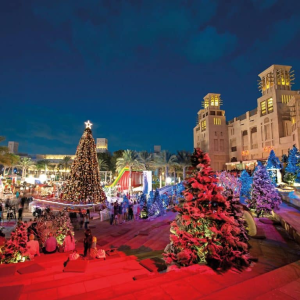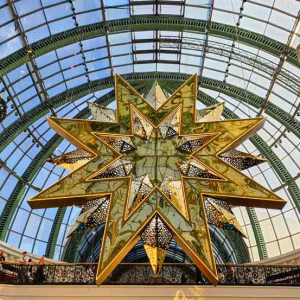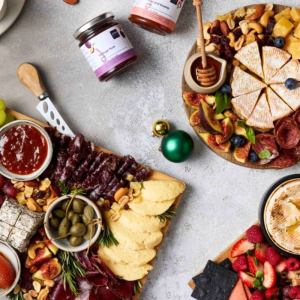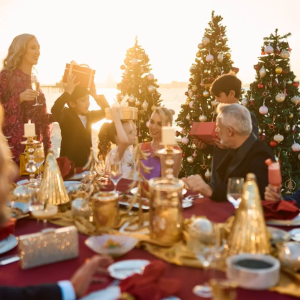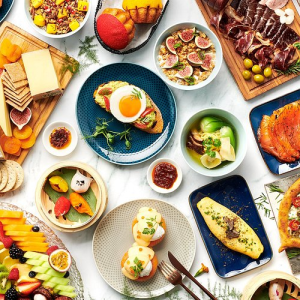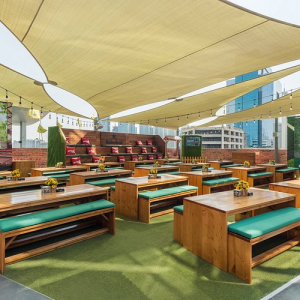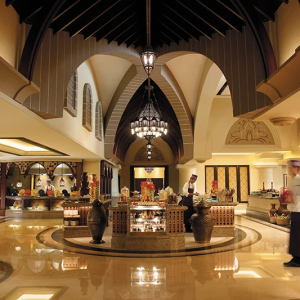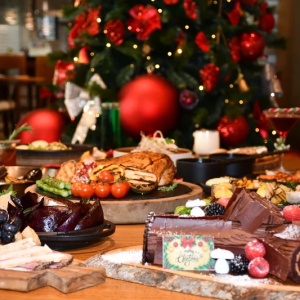In the Emirates, a weddings is more than a celebration—it’s a statement of heritage, family unity, and joy. Whether held under a starry desert sky or in a lavish hotel ballroom, Emirati weddings are a remarkable blend of old customs and modern flair. With a rich culture rooted in hospitality, music, and symbolism, every detail of a traditional Emirati wedding tells a story—yet today, those stories are being retold with contemporary touches that reflect a younger generation’s evolving identity.
From henna nights and bridal trousseaus to designer gowns and Instagram-worthy venues, here’s a full look at what makes weddings in the UAE unforgettable.
The Journey Begins: Arranged Meetings and Proposals
Traditionally, marriage in the Emirates begins with the *khitbah—a formal proposal where families of the bride and groom meet. In the past, these were arranged entirely by elders, with the couple often not meeting until the engagement. While modern Emiratis increasingly opt for love matches, *family approval and involvement remain essential.

Today, even when a couple meets independently—at university, work, or social events—they still honor customs by inviting elders to formalize the union. This blend of modern romance with traditional respect reflects a changing, yet culturally grounded society.
Engagement and the Henna Night
Once the proposal is accepted, preparations for Al Henna Night begin. This pre-wedding celebration, held for the bride, is one of the most cherished traditions in Emirati culture. It’s a night filled with laughter, music, and the fragrant scent of henna—a natural dye that symbolizes beauty, blessings, and protection.

What happens during Henna Night:
- The bride’s hands and feet are decorated with intricate henna designs, often featuring motifs of love and fertility.
- Women sing traditional Al-Ayyala and Al-Razfa songs.
- Guests wear traditional dresses such as the jalabiya or thobe, and gift the bride perfumes, jewelry, and fabrics.
Though some opt for minimalist modern versions, many brides still choose to wear the kandoura, a traditional heavily embroidered dress passed down through generations.
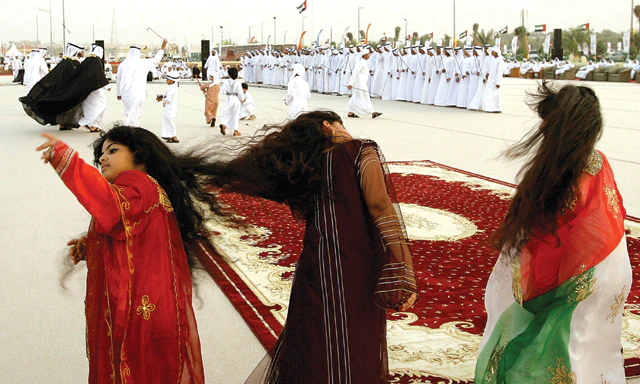
The Bridal Trousseau – Al Zihbah
The Zihbah is a key part of the wedding—essentially the bride’s trousseau, packed with clothes, accessories, cosmetics, and gifts. In traditional families, it is displayed in the bride’s family home for women to view before the wedding day.
Typical items include:
- Abayas, perfumes, gold sets, and luxury brand items
- Decorated in ornate trunks or on velvet-draped tables
- Often shared on social media in modern-day “Zihbah reveal” videos
This tradition continues to evolve, with high-end boutiques now offering curated wedding trousseau services across the UAE.
The Grand Ceremony: Where Old Meets New
The wedding ceremony itself is a lavish affair, often hosted in opulent venues such as Emirati palaces, hotels, or outdoor desert settings. Separate celebrations are still common—one for men and one for women—with the bride’s party being a glamorous spectacle.
Key elements of a traditional Emirati wedding:
- The groom wears a kandura (white robe) with a bisht (a formal cloak), and the bride wears a dress that may combine modern design with traditional accents.
- Traditional music such as Al-Mayyala or Harbiya fills the air.
- Incense burners perfume the venue with oud and bukhoor.
- Guests are served a grand Emirati feast, featuring dishes like *machboos, harees, and *luqaimat.
Many modern weddings now include *mixed-gender receptions, **destination settings, and **custom wedding hashtags—but even so, they retain familiar elements like the *zaffa (wedding march) and gift-giving.
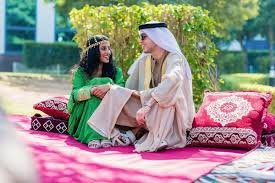
The Mahr and the Marriage Contract
A crucial component of Emirati weddings is the mahr—a mandatory gift from the groom to the bride, agreed upon during the engagement. It can be symbolic or significant and often includes gold, money, or real estate.
Once the mahr is agreed upon, the Nikah (Islamic marriage contract) is signed. This usually takes place in a majlis (traditional sitting area) or at home, in the presence of a religious figure and witnesses.
The contract defines the terms of the marriage and is legally binding under UAE personal status law. While the ceremony is sacred and simple, it’s one of the most important parts of the entire celebration.
Women’s Weddings: Glamour and Sisterhood
Women’s wedding parties in the UAE are famously glamorous, resembling fashion shows more than traditional events. Held in private, often gender-segregated spaces, these gatherings allow Emirati women to dress up, dance, and celebrate freely.
- Expect ballgowns, high heels, and stunning hair and makeup
- Popular venues: Emirates Palace, Qasr Al Watan, Burj Al Arab ballrooms
- Live DJs, traditional bands, and professional photographers capture every moment
It’s not just about the couple—it’s also a celebration of family pride, sisterhood, and joy.
A Post-Wedding Tradition: Al Saddouq and Al-Raada
After the ceremony, traditions like Al Saddouq (a celebration in the groom’s home) and Al-Raada (tribal sword dances and poetry recitation) continue the festivities for days. These practices emphasize the welcoming of the bride into the groom’s family and the broader community.
Gifts, songs, and blessings fill the air as families share food, poetry, and stories—a fusion of communal joy and generational legacy.
Modern Trends: Destination & Designer Weddings
While tradition remains strong, younger Emiratis are reshaping wedding culture:
- Luxury destination weddings in Europe or the Maldives
- Custom couture gowns by international designers
- Social media wedding reveals and cinematic video productions
- Eco-friendly weddings using sustainable decor
Despite the glitter and globalization, what stands out most is how Emirati weddings still honor culture, family, and faith—even with modern interpretations.
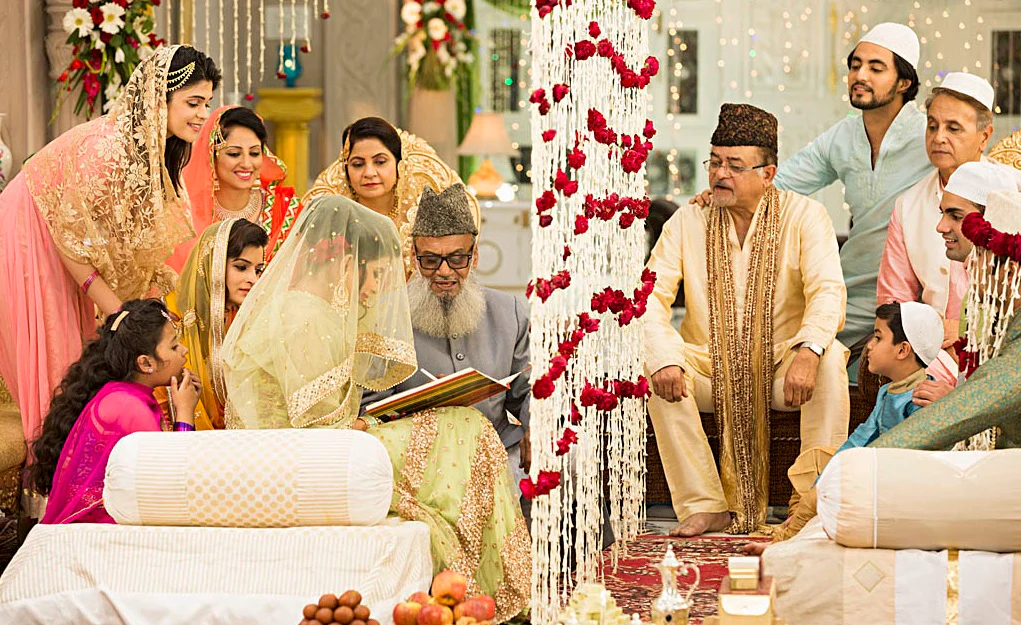
Final Thoughts: Where Love Meets Legacy
Weddings in the Emirates are a dazzling reflection of how a country can stay deeply connected to its traditions while confidently embracing the present. From the heartfelt henna ceremonies to five-star celebrations, every Emirati wedding is a journey of love, culture, and belonging.
Whether you’re attending one, planning your own, or simply admiring from afar, you’ll find that these weddings are more than events—they’re expressions of a nation’s soul.
Follow us on Instagram: UAE STORIES
Discover How the UAE Keeps Its Folklore Alive Through Storytelling, Song, and Community Memory

